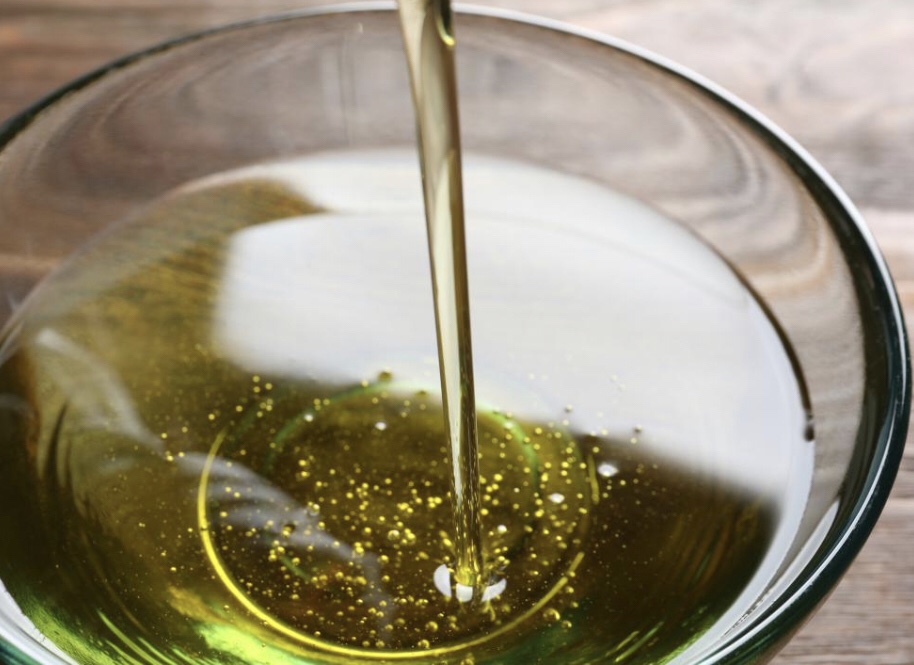August 26, 2019 By Jamie Eske
Reviewed by Debra Sullivan, PhD, MSN, RN, CNE, COI
A sexual lubricant, or lube, can reduce friction and enhance sexual pleasure. Although olive oil has other health benefits, people should avoid using it as a sexual lubricant. Water-based and silicone-based lubricants tend to be preferable.
When looking for the right lubricant, a person may want to consider whether they will use a condom. Olive oil has the potential to dissolve latex condoms, which can increase the risk of infection and unwanted pregnancy.
Because of this, it is not advisable to use olive oil as a sexual lubricant.
In this article, we discuss the safety implications of using olive oil as a sexual lubricant. We also list some alternatives to consider.
Can I use olive oil as a lubricant?
Olive oil can damage condoms
Olive oil is a thick, smooth liquid, and people can technically use any liquid or gel as a sexual lubricant. However, some options, including olive oil, may not be ideal.
This damage can cause these elements to break, increasing the likelihood of a person becoming pregnant or contracting a sexually transmitted infection (STI).
Olive oil can also clog skin pores. Clogged pores can cause breakouts or irritation, which can lead to infections in or near the vagina and anus.
Cleaning up after sex can also present a challenge because olive oil is not water-soluble, meaning it can take longer to remove. Oils of any kind can stain fabrics, so olive oil can leave marks on clothes and sheets.
Studies on the effects of olive oil on the body have also produced mixed results.
For example, some studies have found evidence suggesting that olive oil has anti-inflammatory, antioxidant and cardioprotective effects.
In a 2016 animal study , researchers found that olive oil improved the healing of pressure ulcers in mice. According to the study paper, olive oil may promote skin regeneration by reducing oxidative damage and inflammation .
On the other hand, the authors of a 2018 review article pointed to study results showing that olive oil could damage the outer layer of the skin, or the stratum corneum. This layer acts as a barrier between the external environment and the body.
Why use lubricant?
Many people use lubricants to enhance their sexual experience. Lubricants add moisture, which reduces uncomfortable friction during sex.
Having sex without lubricant can damage the delicate epithelial lining of the vagina and anus, increasing the risk of infection.
Although the vagina naturally produces lubricant during arousal, many women experience vaginal dryness. Several factors can contribute to vaginal dryness, such as:
- Perimenopause or menopause
- Side effects of certain medications, such as anticholinergics
- Dehydration
- Chemotherapies
- Smoking
Using lubricant can improve a person's overall sexual experience, and potentially that of a partner as well. However, it is essential to consider the risks of using products that manufacturers did not explicitly intend for this purpose. Some lubricants can disrupt the natural pH balance, which could lead to infections.
Alternatives
The best lubricant alternatives include personal lubricant products and natural water-based gels.
People can choose from a wide variety of lubricants. The best lubricant product depends on a person's preference and whether they are using condoms or other barrier methods.
Water-based lubricants
Water-based lubricants will not damage latex condoms. However, they tend to dry out faster than oil-based products.
When choosing a water-based lubricant, people should check the ingredients for potential allergens.
According to a 2015 animal study, water-based lubricants with high salt concentrations (hyperosmolar) can damage cells lining the rectum. This cell damage can increase the risk of infection and STI transmission.
However, the authors of this study concluded that hyperosmolar water-based lubricants do not increase the risk of HIV transmission.
In a small 2018 study, researchers observed that using hyperosmolar lubricant caused changes in bacterial composition in the rectum but did not affect concentrations of pre-exposure prophylaxis, a preventive treatment for people with a high likelihood of contracting HIV, among adult men.
People can choose from a range of water-based lubricants.
Silicone based lubricant
Water-based and silicone-based lubricants are safer to use than olive oil.
Pre-lubricated condoms tend to use silicone-based lubricant because it doesn't damage latex.
This product also tends to last longer than water-based lubricants, making it a popular choice for many people.
People can purchase silicone-based lubricant.
However, silicone-based lubricants are difficult to remove from fabric as they do not react with water. These lubricants can also take a while to be expelled from the vagina and anus, which can increase the risk of infection if bacteria are trapped in the lubricant.
Other lubricants to avoid
In general, people should avoid using anything that manufacturers do not claim to act as a sexual lubricant. However, natural products with high water content, such as aloe vera gel, can serve as effective alternatives to personal lubricants.
The Food and Drug Administration (FDA) advises that people who use non-lubricated latex condoms avoid any oil-based lubricants or substances containing fats or grease. These substances can weaken latex condoms.
People should also try to avoid using these products as sexual lubricants:
Vaseline (petroleum jelly)
cooking oils
coconut oil
baby oil
dairy butter and lard
facial creams and body lotions
Summary
Olive oil may seem safe and effective to use as a sexual lubricant. However, it is not advisable.
Olive oil can damage latex condoms, which can cause them to break. It can also weaken the skin's natural barrier function and clog pores, which can lead to breakouts and infections. Oils also repel water, making fabrics harder to clean and wash.
It is technically possible to use olive oil as a sexual lubricant. However, better alternatives include high-quality water-based lubricants or silicone-based lubricants.
People can choose from a wide variety of safe and effective personal lubricants in stores or online.
At: https://www.medicalnewstoday.com/articles/325960.php

